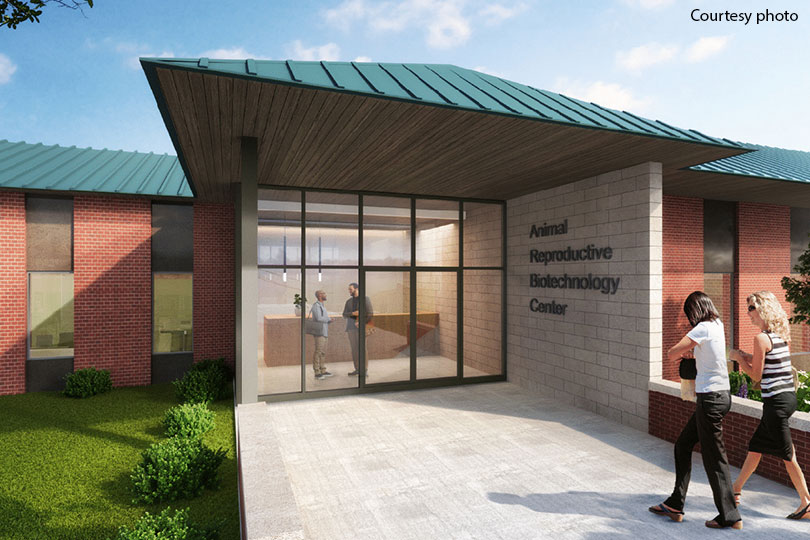The Texas A&M Department of Animal Science is building an Animal Reproductive Biotechnology Center with the intention of strengthening its pursuit of innovation and collaboration through academic and industry-partnered research.
The $13-million center will also focus on the latest techniques and hands-on instruction.
The Department of Animal Science in the Texas A&M College of Agriculture and Life Sciences looks to enhance its teaching, research and outreach capacity to better increase understanding of animal reproduction at a molecular, cellular and whole animal level while addressing known reproductive issues.
The new facility is expected to be completed in late 2024 on the Texas A&M-RELLIS campus in Bryan.
The center will include educational spaces, animal-handling areas and dedicated research lab space for emerging technologies and practices for academic and industry partner use.
It will also allow the department and industry to work together to generate science that optimizes reproductive efficiency and minimizes economic loss for producers.
“Our land-grant mission at Texas A&M AgriLife gives us a specific duty to drive emerging science that pushes innovation to better serve those around us,” Dr. Jeffrey W. Savell, vice chancellor and dean for Agriculture and Life Sciences, said. “The value added when industry joins in conversations with some of the world’s leading scientists and researchers is immeasurable.”
Reproduction issues are a major concern for livestock producers. The U.S. Department of Agriculture’s National Institute of Food and Agriculture reports reproductive failure in livestock results in millions of dollars of profits lost annually.
Collaboration between the department and industry will help Texas A&M AgriLife remain responsive to the needs of the industry by addressing reproductive issues, among other challenges.
“It’s essential that we generate science our partners can trust and apply,” said Dr. G. Cliff Lamb, director of Texas A&M AgriLife Research. “To do this, we will need to be more creative and entrepreneurial to effectively support our programs as we strive to create the translational research necessary to develop and produce sustainable livestock systems with local, national and global impacts.”
Instructional facilities, like the new center, help make further research possible to improve production efficiency in animal agriculture and to enhance human health.

